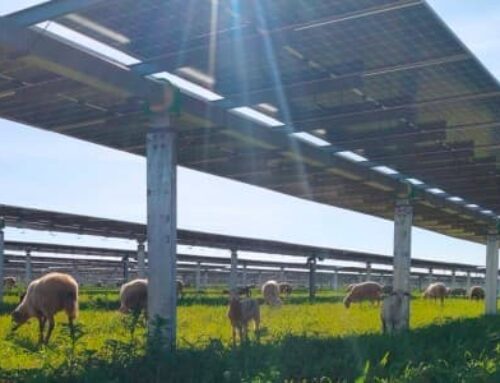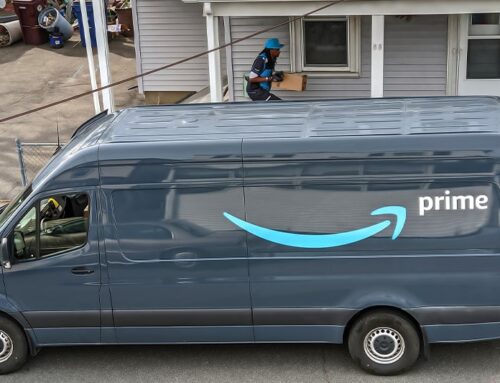Finding Healing Through Cannabis and Why It’s Time To Talk About It
April 28, 2025

Interview by Joseph A. Bondy, Board Chair, NORML
“I didn’t think this would be my cause,” Zeke Thomas says with quiet conviction. The acclaimed DJ, producer, and outspoken advocate didn’t set out to become a voice for survivors of sexual assault. But over the past decade, his journey of recovery has transformed him into a beacon of truth and transparency.
Zeke’s story is one of courage, trauma, creativity—and healing. An Emmy-nominated artist and son of NBA legend Isiah Thomas, he first turned to cannabis as a young man trying to connect socially. What began as casual use later evolved into something much more profound: a powerful tool in his path to reclaiming control and rebuilding his life after surviving sexual assault twice—once at age 12 and again at 27.
April is National Sexual Assault Awareness Month, and NORML is appreciative to highlight Zeke’s story—a story that doesn’t just illuminate the healing power of cannabis but also breaks the silence around trauma, especially among male and queer survivors.
Zeke joined me for an intimate and far-ranging conversation about what recovery looks like, why plant medicine has been central to his healing, and how advocacy has become his path forward.
Cannabis as Recovery: A Personal Transformation
“Cannabis is a natural recovery tool for trauma,” Zeke says. “Whether that’s sexual trauma, drug abuse, or bad relationships… In this healing journey post-assault, I feel like I was a completely different individual then than I am today.”
Now 36, Zeke reflects on his relationship with cannabis with a sense of clarity and intention. Like many, his first encounter with the plant wasn’t about healing but fitting in.
“I don’t think I ever wanted to get high,” he recalls. “I wanted friends. I was just trying to find a friend group.”
Through college and into his early music career, cannabis remained part of his social life. But even as he produced tracks like the powerful single “BLACKNESS,” Zeke began to realize that he was also using the plant to manage his anxiety—and eventually, his trauma.
“I wasn’t a joint-roller,” he says. “I wouldn’t take a joint on the run. I was just an inside smoker. There were portions of my life where I used cannabis solely to be creative. But later, I understood it as a self-regulation tool.”
Surviving, Suppressing, and Speaking the Truth
Beneath the music and media appearances (notably on Good Morning America and MTV’s Catfish, among others), Zeke carried a heavy burden. He was first sexually assaulted at 12 years old, a trauma he mostly kept hidden for years.
“We moved cities shortly after it happened,” he says. “I told my mom, but we just kept going. I didn’t speak about it again until college.”
Zeke didn’t speak to his father about the first assault until he was 27—after the second occurred. “My mom told him [about what happened when I was 12]. I don’t remember ever having a conversation about it until then. And honestly, I didn’t even fully understand it at the time. I hadn’t developed sexually yet. I didn’t know what it meant.”
Navigating identity, trauma, and healing as a queer man presented additional layers.
“As I stepped into being a queer man,” he explains, “I had to process my relationship with sex, and my relationships with dominance and submission. I’ve had moments of discomfort around intimacy with men. The fear is in the vulnerability—giving up control.”
Breaking the Silence, Building Community
Zeke’s willingness to speak out is part of what makes him a groundbreaking figure in queer activism. He became the National Sexual Violence Resource Center’s first male spokesman and has since garnered honors from NYC Pride, GLAAD, the Ruth Ellis Center, and QueerX.
He’s painfully aware of the silence that surrounds male survivors. According to statistics from the NSVRC, 1 in 4 men in the U.S. have experienced sexual assault, yet fewer than half report it.
“We need to erase the shame and build community through storytelling,” he notes.
To that end, Zeke launched the “Talk About It” campaign on April 15th with the re-release of his single “Love Me Sober” (featuring Lé Art), paired with a powerful video series of open conversations with artists and advocates about their experiences with trauma and recovery.
The series features Grammy-winning producer Anthony Preston, choreographer Laurieann Gibson, celebrity stylist Cesar Ramirez, activist Adam Eli, model Cheyenne Parker, designer Onch Movement, and more. It’s executive produced by Zeke alongside EJ Jamele of crowdMGMT and actor Louie Torrellas.
Zeke emphasizes that these conversations center not just on healing, but also on preserving protections for vulnerable communities.
“Sexual violence awareness is a DEI issue,” he says. “When DEI initiatives get stripped from schools and workplaces, survivors—especially queer and BIPOC survivors—lose their visibility and protections. We get pushed back into the margins. We need space to be seen and heard.”
The Plant as a Partner in Healing
Today, cannabis plays a consistent role in Zeke’s wellness. Over time, his use shifted from occasional smoking to a structured, supportive tool—alongside therapy and, more recently, ketamine infusions.
“I’m fully functional now,” he says. “I self-medicate; I self-regulate. I have a cannabis vape I use throughout the day. It’s almost like having a little security blanket in my pocket.”
He’s moved from anxiety-driven use to a balanced routine, favoring concentrates and vaping over smoking joints. “I still have a bong at home,” he grins. “But I’m a concentrates guy now.”
Creative Recovery: Writing, Music, and Meaning
For Zeke, healing is also creative. Cannabis often serves as his catalyst to write, think, and reflect.
“Talk more, write more, while using cannabis,” he encourages. “See how it inspires you. Even if it starts socially, cannabis can evolve with you. It’s okay to see your use in stages. We all have different needs—social, artistic, medical. We’re all working toward some form of recovery.”
He quickly reminds us that recovery isn’t linear but always forward.
“Recovery happens,” he says. “It’s not a straight line. But we all end up walking toward the same goal.”
By sharing his truth, Zeke Thomas doesn’t just heal himself—he helps others heal, too. At NORML, we’re honored to have Zeke as part of our Advisory Board and prouder still to support his mission. By choosing to talk about it, he’s making space for others to do the same—and proving that recovery, with community and cannabis, is always within reach.
Search
RECENT PRESS RELEASES
Related Post


